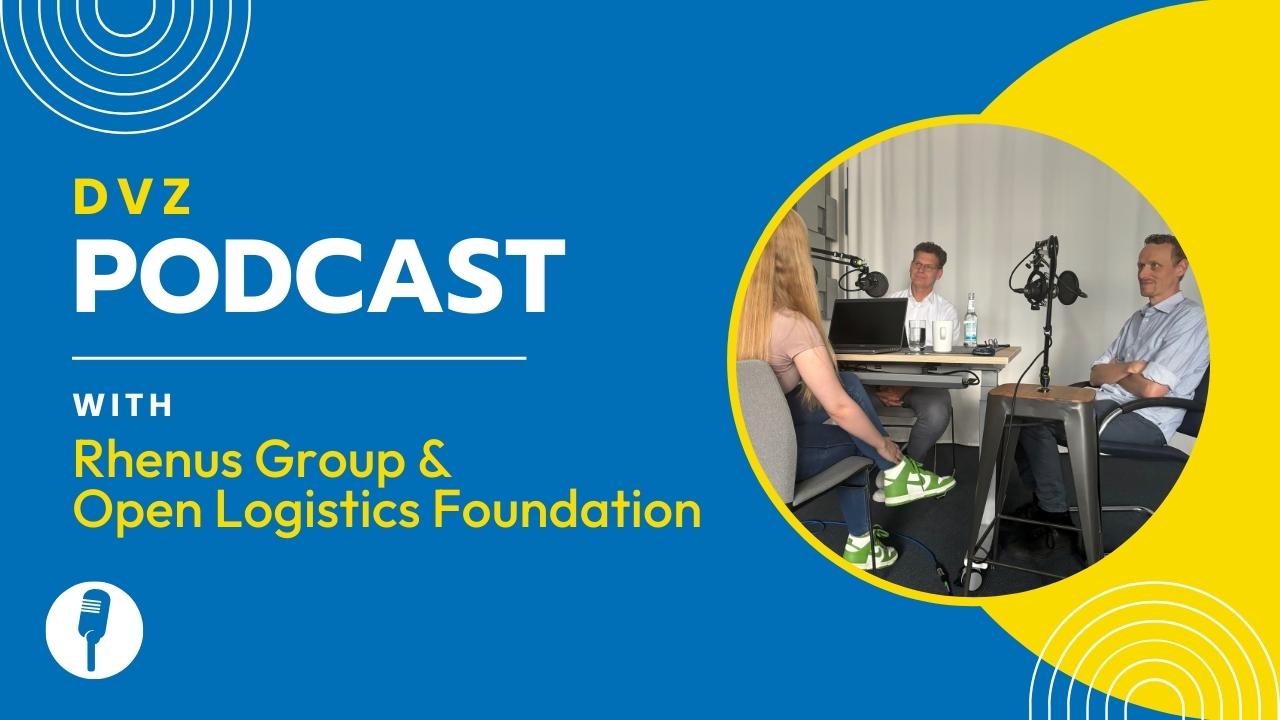Collaboration and innovation in Logistics
Andreas Nettsträter passionately articulated the Foundation’s mission: “The Open Logistics Foundation is the neutral partner, the neutral place where developments take place together. It’s a communal effort where everyone can participate, and every voice is heard.” The Foundation’s unique approach encourages collaboration among logistics players, transcending competition to address industry-wide challenges collectively. Solo thinking and efforts to logistical challenges have previously failed and will continue to do so unless we combine our vision and efforts.
In the same light, Stefan Hohm added, “At the Open Logistics Foundation, we only deal with issues that affect the entire market. The added value is created in the companies, not in the Open Logistics Foundation. The commodity is produced there, while the companies continue to produce their USP themselves without sharing the knowledge.”
Digital transformation of logistics processes
The discussion highlighted the outdated processes in logistics, particularly the persistence of paper-based waybills. Stefan Hohm delved into the challenges facing logistics. He highlighted the significance of the Electronic Consignment Note (eCMR) developed under the Foundation, calling it a “forward-looking path that will create de-facto standards in the logistics world.” The eCMR represents a digital leap, streamlining processes and providing real-time insights, marking a significant transition from traditional paper-based documentation. The success of the eCMR project serves as a prototype for further digitisation efforts in the logistics industry.
Practical testing and real-world impact
The podcast provided a glimpse into the real-world impact of the eCMR through practical testing in collaboration with Dachser, Rhenus and Fraunhofer IML, showcasing the benefits of blockchain integration and real-time information. Ingo Müller expressed satisfaction: “It was a very, very great feeling when the first eCMRs were actually running. It was sensational that you could see what you were doing was working, perhaps couldn’t have imagined a year ago.” The digital transformation improves efficiency, enhances transparency, and reduces the risk associated with paper-based documentation.
Roman Konrad additionally expressed his satisfaction with the real-time component of the new waybill. “The sender knows immediately that it has arrived at that moment. Using blockchain technology also means that it is guaranteed that a receipt has actually been provided. Saving time and simplifying the administrative process for both customers and freight forwarders.” Currently, it can take several days for the waybill to reach the sender as a receipt. That will be history in the future with the eCMR solution.
Fostering innovation and efficiency
Ingo Müller brought a unique perspective to the forefront during the Netzwert podcast episode. Sharing the process and complexities of the eCMR development, he noted, “Knowing that as a lighthouse project, we will serve as a role model for other working groups is why we put much thought into the development of the working group and didn’t look for quick success, but rather sustainable success. So that we can become significantly faster, effective, efficient and productive for future projects.”
He highlighted the meticulous planning and dedication required for the project’s success, mentioning that the working group had to first develop a common understanding before the actual work could begin. Ingo envisions a broader application beyond the eCMR, indicating the potential to digitise numerous other documents in the logistics realm, showcasing a commitment to sustained innovation within the Open Logistics Foundation.
A community approach for comprehensive solutions
Andreas Nettsträter furthermore highlighted the importance of a community approach in driving the acceptance of new technologies in logistics. He calls on all companies connected to logistics and supply chain to join the Foundation, envisioning a collaborative effort to increase efficiencies through digitisation. “We can’t do it alone. And this whole story becomes exciting when we can map the entire supply chain,” he remarked. With 28 member companies, the Foundation has achieved positive interim results since its founding in 2021.
In conclusion, the Open Logistics Foundation is a catalyst for change in the logistics industry, fostering innovation and efficiency through collaboration. The Foundation’s journey, as shared on Netzwert, showcases a commitment to collaborative solutions that benefit the entire logistics ecosystem.
Listen to the full podcast in German Language here: https://www.dachser.de/de/mediaroom/NetzWert-Der-DACHSER-Podcast-14-Gemeinsame-Forschung-mit-Open-Source-24130?bookmarked=false&type=4




